

Sanjoy Bhattacharya, in his article “Investors Should Defy Conventional Wisdom” published in Forbes India, advises investors not to fall victim to the power of conventional thinking. He points out that for an overwhelming majority of investment professionals the only thing that matters is to figure out “what the market thinks” as opposed to building a well-informed opinion of one’s own. He explains that the market judgment that is distilled from this process need not have any links with an objective reality. Both truth and falsehood spread contagiously gets eventually accepted as “conventional wisdom”.
Sanjoy Bhattacharya suggests that instead of the dangerous “what the market thinks” approach, investors must adopt a sensible method of taking investment decisions by making a simple reconciliation between the market price of a stock and its fundamental value. In determining the fundamental value, investors must take a detached and objective view, he says. If the fundamental value of the stock is higher than the market price, then the stock must be bought, he advices.
Sanjoy Bhattacharya also takes a leaf out of Rakesh Jhunjhunwala’s priceless advice that “investors must see tomorrow” and suggests that investors must not focus on where the ball is at the moment but on where it will land when the player has kicked it.
Sanjoy Bhattacharya once again expresses his contempt for technical analysis. He says that the idea that you can predict stock prices based on a historical analysis id “ludicrous” and adds that the tribe of chartists has a “deservedly wretched reputation” among sensible investors.
The most eagerly awaited aspect of Sanjoy Bhattacharya’s article is his stock pick. This time, applying his famed “dispassionate approach to analysis“, Sanjoy Bhattacharya has recommended Balkrishna Industries. He calls it a “compelling investment opportunity” and a “solitary exception“. Sanjoy Bhattacharya explains that Balkrishna Industries is well positioned in a highly profitable niche (off highway tyres) and derives 90 percent of its revenues from exports. Balkrishna is midway through a capacity expansion programme which should help to increase its global market share from the current 3.5 percent to well over 5 percent in a couple of years. Natural and synthetic rubber prices, which account for more than half the total raw material costs, have retracted from their 2012 highs, and are unlikely to be a cause for concern in the next couple of quarters. Analysts were disappointed by the 15 percent decline in volumes in the most recent quarter and have been quick to ratchet their earnings estimates downwards. Even after the downgrade, Balkrishna trades at just over 7 times current earnings and 1.7 times book value. The company has an interest coverage ratio in excess of 10 at the current juncture
Sanjoy Bhattacharya’s stock pick appears to be a Mutual Fund favourite as well. The ET pointed out that Mid-cap fund managers, who prefer to invest in growth-oriented businesses rather than just momentum stocks, appear to have taken a liking to Balkrishna Industries since the start of this fiscal. The holdings of mutual funds in Balkrishna Industries have risen substantially from less than 15% a year ago to close to 20% at the end of the Dec 2012 quarter despite the ongoing slump in the automobile sector. ET explained that fund managers’ interest in Balkrishna Industries is because of its’ presence in the niche off-highway tyres, or OHT segment, where it is the country’s leading player and exporter. Almost 90% of Balkrishna Industries’ revenues is derived from the export market, especially the US and Europe where it also enjoys competitive advantage over its global competitors on account of lower costs as manufacturing costs, especially labour costs, are much lower in India. ET also pointed out that labour accounts for just about 3% of Balkrishna’s operational costs unlike its global peers for whom labour alone accounts for 15-20% of total operating costs. It also emphasized that the high-margin replacement market accounts for a higher share in its product mix and that it not only enjoys relatively higher operating margins but the impact of global slowdown has so far been limited.
Balkrishna Industries currently operates at earnings before interest depreciation and tax, or EBITDA, margin of over 20%, which is considered decent in this industry.
ET opined that given its strong presence in infrastructure and farm sectors, where the global demand for replacement tyres is expected to remain strong, it is reasonable to expect Balkrishna Industries to continue to operate at these encouraging margins provided raw material prices — rubber, continue to remain at the current levels. Rubber prices have declined by about 40% in the past two years, which has also helped Balkrishna operate at higher margins. At its current market price of Rs 268-270, Balkrishna operates at a twelve month trailing P/E of 7.5, which is a premium over Ceat and JK Tyre and at par with MRF, says ET.
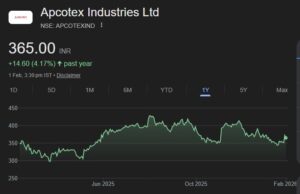
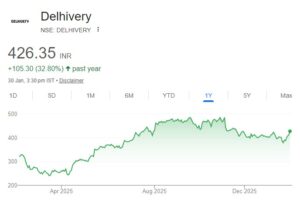
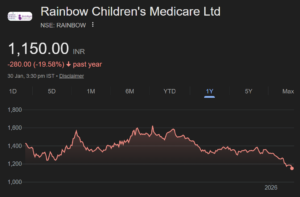
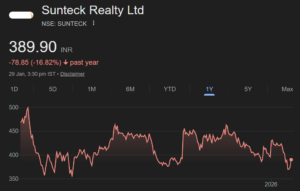
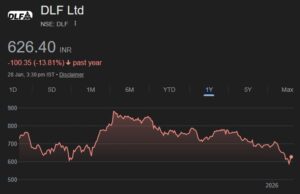
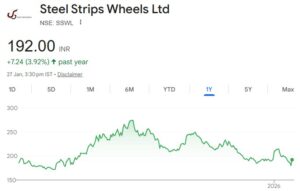
GOOD READ.
sir should we still buy balkrishna industries at the current level of 530-538 with a prospect of 1 year.